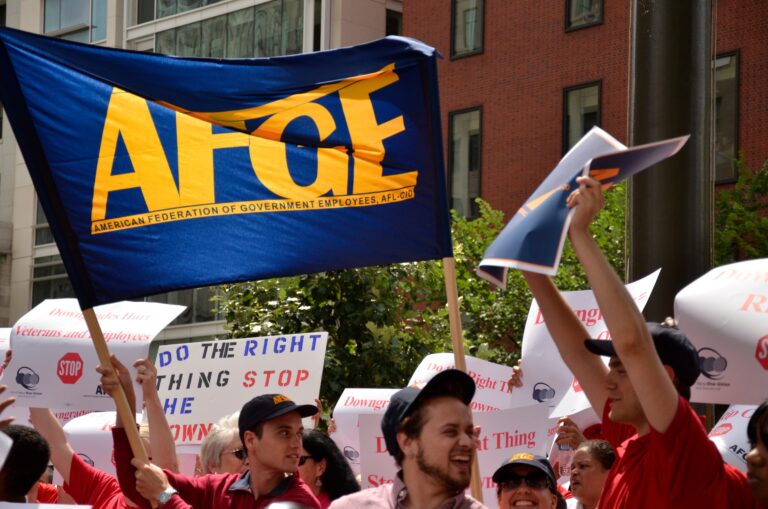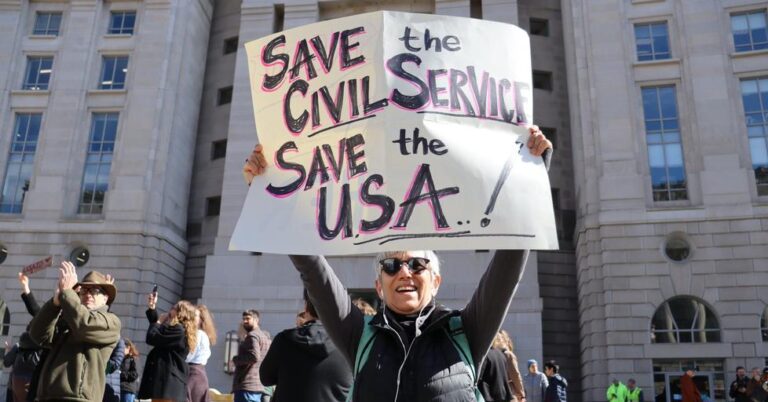
Marissa Marandola is a student at Harvard Law School.
On Friday, the Writers Guild of America (WGA) instructed its 15,000 members to fire their agents or face penalties, after talks between the union, which consists of movie and television writers, and the Association of Talent Agents (ATA), the group representing the major agencies in negotiations, deteriorated ahead of a midnight deadline. The writers claim that agents are enriching themselves at their clients’ expense by producing their own projects and collecting fees for “packaging” multiple clients into a single project. They further allege that these practices create an impermissible conflict of interest between agents and clients. The agencies deny the charges in full. The two sides were in the midst of their fifth bargaining session in seven days, following a one-week extension of the previous franchise agreement, when they reached a stalemate. The WGA announced that negotiations had soured in a lengthy response to the ATA by WGA West President David Goodman. He wrote, “[W]e granted the week’s extension as a sincere effort to try to find a solution. But it is clear to us that we are not appreciably closer.” Karen Stuart, executive director of the ATA, attributed the fallout to the WGA, saying in a statement, “The WGA is mandating a ‘Code of Conduct’ that will hurt all artists, delivering an especially painful blow to mid-level and emerging writers, while dictating how agencies of all sizes should function.” At 12:01 Saturday morning, the 43-year-old franchise agreement between the WGA and the major agencies representing its members expired, signaling the beginning of strike conditions. In its place, the WGA has adopted a robust new code of conduct for agents, approved by 95 percent of members on March 31, that aims to curb packaging fees and agent ownership in production companies. WGA members are required to refrain from working with non-union approved agents for future WGA-covered work and to notify their agencies via form letter that they cannot represent WGA members until they agree to sign a franchise agreement with the union that largely conforms with the terms of the code of conduct and eliminates both of the contested practices.
Employees at Volkswagen AG’s plant in Chattanooga, Tennessee have filed a petition for a union election with the NLRB, indicating that at least 30 percent of plant employees turned in cards authorizing the UAW to represent them. The petition requests that an election be held on April 29-30. The UAW tried to organize the Chattanooga facility in 2014, but lost a close election 712-626 after intervention by Tennessee Republican politicians. It subsequently prevailed in an election conducted among a unit of 164 skilled maintenance workers at the plant. VW has consistently refused to bargain with the UAW as the representative of its skilled maintenance workers in Tennessee on the grounds that the smaller unit is inappropriate, a question which is currently before the NLRB on remand from the D.C. Circuit.
The U.S. Department of Labor’s weekly unemployment numbers showed that applications for unemployment benefits dropped by 8,000 to a seasonally adjusted 196,000 last week, the lowest level since October 1969. The four-week average, considered a more reliable indicator, fell to 207,000, also a fifty-year low. The numbers reflect employer confidence that the economy will remain stable. However, the AP’s Christopher Rugaber points out that a strong labor market is not the only factor behind the figures: “Many states have imposed stricter rules on their unemployment insurance programs – from making it harder to qualify to reducing the duration of benefits to cutting payouts” – policy changes that contribute to the decline in applications for aid.
Democrats in Congress continue to debate the Raise the Wage Act, which would raise the federal minimum wage from $7.25/hour to $15 by 2024. At present, the bill is just shy of the 218 votes it needs to pass in the House of Representatives. The Washington Post reports that at a Democratic policy retreat late last week, moderate Democrats from rural areas expressed their preference for an alternative bill introduced by Rep. Terri A. Sewell (D-Ala.) that would adjust the federal minimum wage on a regional basis to account for geographic variation in the cost of living and purchasing power. Liberal and progressive Democrats are strongly opposed to measures that would water down the Raise the Wage Act. Labor leaders at the retreat were similarly against the regional model; Mary Kay Henry, president of the SEIU, told reporters that “We are united in pushing a $15 minimum wage to the House floor, getting it voted and moving to the Senate, and then challenging the Senate to vote against people being able to work out of poverty.” 205 members of the House support the Raise the Wage Act, while 12 back Sewell’s bill.
Bret Schulte writes for Slate that the next generation of union workers are young white-collar professionals. He observes that “workers under age 35 are outpacing every other age group in new union membership” and that more than one million professionals have joined unions in the past twenty years, even as blue-collar union membership has declined by three million over the same period. Though professional union members have different priorities than their blue-collar counterparts, recent bouts of collective action in the education, technology, and journalism sectors have demonstrated that they are still committed to change in the workplace. As Schulte notes, “The professional class is by no means offsetting the country’s net loss of union members, but how the newbies are behaving shows they understand exactly how collective action is supposed to work: They’re leaving their manners at home.”






Daily News & Commentary
Start your day with our roundup of the latest labor developments. See all
December 3
The Trump administration seeks to appeal a federal judge’s order that protects the CBAs of employees within the federal workforce; the U.S. Department of Labor launches an initiative to investigate violations of the H-1B visa program; and a union files a petition to form a bargaining unit for employees at the Met.
December 2
Fourth Circuit rejects broad reading of NLRA’s managerial exception; OPM cancels reduced tuition program for federal employees; Starbucks will pay $39 million for violating New York City’s Fair Workweek law; Mamdani and Sanders join striking baristas outside a Brooklyn Starbucks.
December 1
California farmworkers defend state labor law, cities consider requiring companies to hire delivery drivers, Supreme Court takes FAA last-mile drivers case.
November 30
In today’s news and commentary, the MSPB issues its first precedential ruling since regaining a quorum; Amazon workers lead strikes and demonstrations in multiple countries; and Starbucks workers expand their indefinite strike to additional locations. Last week, the Merit Systems Protection Board (MSPB) released its first precedential decision in eight months. The MSPB had been […]
November 28
Lawsuit against EEOC for failure to investigate disparate-impact claims dismissed; DHS to end TPS for Haiti; Appeal of Cemex decision in Ninth Circuit may soon resume
November 27
Amazon wins preliminary injunction against New York’s private sector bargaining law; ALJs resume decisions; and the CFPB intends to make unilateral changes without bargaining.